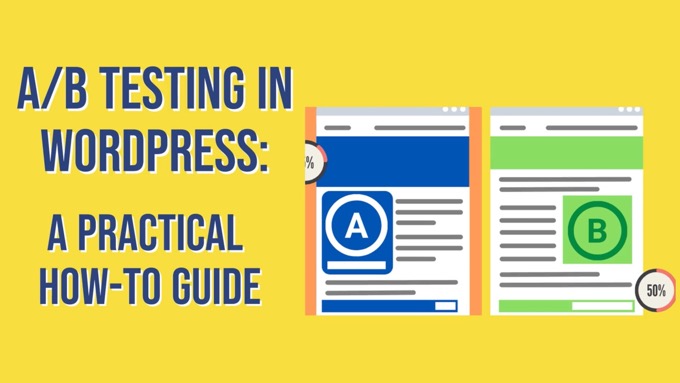If you've ever published a regular blog for a business, no doubt at one point or another you've struggled to come up with an idea for a new post.
And if you've got the pressure of an upcoming, imminent deadline, that's made even worse.
But there's an easier way...
With this list of 101 business blog post ideas, you’ll never go short for a new content idea again.
In fact, you’ll be able to use this post to plan your content for weeks or months in advance (see #100 below).
Of course, not all the ideas listed below will be suitable for your business—but you’re guaranteed to find at least several dozen that are.
Note that not all are evergreen, with some having a more limited shelf life, so bear that in mind particularly with regard to your post-publication content marketing workflow.
Finally, to make it easier to find an idea you want to use, you'll find the ideas grouped under appropriate categories.
Shall we get started?...
101 Business Blog Post Ideas
Use Inspiration from Customers
- Customer FAQs—for each FAQ, schedule a new blog post.
- Incoming customer queries—train your customer support team to listen out for queries that would form the basis of a new blog post.
- Testimonials—make a list of customers who have had great results with your product or service, such as by looking through recent testimonials. Turn their experience into a case study, if possible interviewing them and getting their input.
- Blog or social media comments—what is your audience telling you they would like to know more about, don’t fully understand, or completely misunderstand?
- Speak to customers—proactively call users of your products and services, find out what their current challenges and knowledge gaps are.
- Customer reviews—comments from customers left on review platforms like TrustPilot can spark new ideas for content. Negative reviews are often more useful than positive—what are customers struggling with, or misunderstanding, about your products or services that a blog post could help with?
FREE 101 Blog Post Ideas, Customized For Your Blog
Answer a couple quick questions, and get a customized list of blog post ideas for your exact blog—it's 100% FREE!
Just hit the button now—it only takes a few seconds! →
Go Behind the Scenes
- Share your founding story—why did you create your product or service?
- Create content that takes the reader behind the scenes as you fulfil a service, create a product, work with customers, or otherwise fulfil a customer’s order.
- Introduce different members of your team and what they do within your business—people love to get behind the scenes in a business, and get to know more about someone they may interact with or hear about.
- Provide a guided tour around your business with images showing different areas and key people.
- What’s been the biggest challenge for your business over the past year? How have you faced it, dealt with it, overcome it or otherwise addressed it (even if it’s still in progress)?
- What’s likely to be the biggest challenge for your business in the next 12 months, or the next 3-5 years? Share current thoughts on how you may deal with it, including any current planning to help you do so.
- Share recent internal events. Has your team or a group within your business been on an away day, had a social event, participated in a team-building exercise or been involved in some other activity?
- What does a single day working in your business for you as an individual look like? Take the reader through the day from the moment you get up, to when you go to work, and then right through your day at work to when you go to bed, including challenges that come up along the way. Readers will find it fascinating, memorable, and will relate more to you in future.
- Has someone in your business done something inspiring, inside or outside the business? Think about charity events, travel, expeditions and personal achievements.
- Celebrate recent successes—has your business received an award, achieved a milestone, reached a certain level of longevity, received investment, launched a new product or service?
- Depending on the market you serve, personal stories from team members can work well if they’re willing to share—stories relating to pets, challenges or obstacles faced and overcome, and adventures or travel can all work well.
- What are you doing in your business that’s proving really effective that your audience can learn from?
Use Media Coverage
The following types of content can all be repurposed as, or used as inspiration for, new blog posts.
- Podcast coverage—has someone in your business been interviewed or featured in a podcast?
- Mainstream media coverage—has your business recently been featured by mainstream media? Maybe someone in your business has been interviewed? Contributed to a discussion program? Written content for a widely-read publication?
- Books and authorship—has someone in your business written a relevant book, or contributed to one (such as writing a foreword, or contributing a chapter)?
Use Events
- Has someone from your business been a speaker at a recent event? Use excerpts from their presentation as the basis of new posts.
- Have you recorded a recent workshop or other event that your business has hosted? Use excerpts from it for new posts.
- If you or someone from your business has been to a workshop as an attendee, what content was shared that can inspire new posts?
- Go to industry conferences regularly—you’re likely to come away with a multitude of new business blog post ideas.
- Use calendar events as the basis of new ideas—write down all the main dates through the year for your market. Depending on your market, some examples might include Valentine’s Day, Easter, Christmas, Thanksgiving, and Independence Day. Are there relevant holiday dates for other cultures or minorities in the market you serve that can also be written about and acknowledged?
- On that note, create a ‘predictions’ post towards the end of the year where you attempt to make predictions for your industry for the following year, or invite others in your industry to make theirs via a roundup post.
- Similarly, create a ‘year in review’ post towards the end of the year where you look back at key events for your business, industry or market over the past year—or review a previous predictions post to see how accurate the predictions were.
FREE 101 Blog Post Ideas, Customized For Your Blog
Answer a couple quick questions, and get a customized list of blog post ideas for your exact blog—it's 100% FREE!
Just hit the button now—it only takes a few seconds! →
Repurpose Existing Content
Some of these you might get several different posts from.
- Repurpose content from one of your whitepapers, reports or guides.
- Repurpose a chapter from a book you’ve written.
- Repurpose a presentation.
- Repurpose a video.
- Look at your autoresponder content—some of your email messages can be repurposed into blog posts.
- Do you have a manual or help information for your products? Repurpose some of this information into posts.
- Provide a more recent perspective on an older post. What’s changed since the original post was written. Link to the older post from the new one for reference, and link to the new one from the original post so people can find your latest information easily.
- As an alternative to the above, rewrite an older post, replacing the original. Keeping posts as up to date and relevant as possible will strengthen your search rankings.
Expand Existing Content
- Review your existing blog posts—what subtopics within the post could you create a brand new post about to examine the topic in more detail?
- Review your listicles—each item on the list is probably summarized relatively briefly. Consider creating a separate post for each that goes into more depth, and can be linked to from the original item.
Use Content Platforms
- Use Quora—search for relevant keywords and see what people are asking about. If you’re contributing to Quora, use the A2As you receive as inspiration for new posts. Are you providing answers that aren’t repurposed from an existing post, but could be used as the basis of a new one?
- Search for relevant keywords on Reddit and checkout some of the discussions. What are people asking about and what are they struggling with?
- Do the same on StackOverflow.
- Do the same on relevant forums for your market.
- Use Medium—what are some of the most popular posts on Medium that are of interest for your market? Use them as inspiration for your own. What are people commenting about on those posts? Some will spark new ideas. Are there areas in the post that the author has glossed over that you could provide more detail on?
- Use LinkedIn Articles in the same way.
- What are some of the most popular videos on YouTube of relevance to your target market? Again, use them as inspiration for your own posts, along with relevant comments people are leaving.
- Remember, YouTube is the world’s second biggest search engine. Search on YouTube for relevant keywords, look at the listed videos—both their titles and content—for inspiration.
Use Social Media
- Use relevant keywords to search Pinterest—you’ll likely see some great content ideas that you could use as inspiration. To some extent, Pinterest is more a visual search engine than a social media platform.
- See what people are sharing within relevant Facebook Groups. What are people struggling with, confused by or asking for help with? What can be expanded into a post?
- Use LinkedIn Groups in the same way.
- Search Facebook for relevant keywords and hashtags to look for inspiration. Don’t forget to look at the comments people are sharing on posts (and on the content it might be linking to), not just the post itself, for key insights into your market that can guide your own content.
- Do the same on LinkedIn.
- Do the same on X. Look at the conversations people are having on relevant topics. What questions are followers, or others, asking you on X?
- Do the same on Instagram.
- Follow relevant influencers on the major social platforms. What are they sharing? What types of content seem most popular?
Use Different Blog Post Formats
- Create a listicle—you’ve got an example right here! A ‘listicle’ is essentially an article based on a list of something, providing people with a useful resource. Titles for this type of blog post might start with 101 Ways to___ , 16 Best___ , or 50+ Ideas for___ . Fill in the blanks with some relevant keywords for your business and adjust the number as needed to spark some ideas.
- Interview an authority figure—interview a key figure in your industry, or a relevant celebrity.
- Create a newbie post—many posts are written with the idea that the audience has at least some level of knowledge or experience in a topic. Yet many will be complete newbies. Create a post that explains something of relevance to your market for someone who is completely new.
- Create a mistakes post—what are the most common mistakes that customers have made in the past, and how can they be avoided? This might result in anything from a single post to a whole series of posts.
Use News Events
- Relevant external news events—what’s happening in the news that is relevant to your business and the people in your target market? Create a post that explains it from your own unique perspective and adds value for people.
- Internal news events—create a post about internal events such as company reorganisations, management changes, key hires, key new clients, successes or milestones of team members (such as achievements and awards).
- Has new technology recently been released that changes some aspect of your business or how you operate?
- Is there new technology on the horizon that is likely to change how you do business? Share your perspectives, potentially including how you are planning for its potential impact.
- What’s in the pipeline for your business’s product offerings? Are you preparing to launch a new product or service? Enhance an existing one? Create a post that creates anticipation and gets people excited.
- Upcoming events—do you have an event scheduled within the next few weeks or months?
FREE 101 Blog Post Ideas, Customized For Your Blog
Answer a couple quick questions, and get a customized list of blog post ideas for your exact blog—it's 100% FREE!
Just hit the button now—it only takes a few seconds! →
Keyword Research
Do keyword research to find out the information that people in your market are searching for. You can then create content to suit those queries.
Ideally, aim for long tail keywords (keywords with 3-5 words or more) as these will have less competition and you'll find them easier to rank for and attract traffic.
- Keyword research—use Google’s Keyword Planner or other keyword suggestion tools to look up some of your main keywords, and see related searches.
- Use Google’s predictive search function (sometimes called Google Suggest)—start typing relevant keywords, and look at the suggested queries.
- Search on Google for relevant keywords. Scroll to the bottom and look at the related search queries.
- Look at Google Analytics to determine some of the keywords that are bringing people to your website.
- Do you have a search function on your blog where you can see what people are searching for? Examine the queries for which you don’t yet supply any content.
Use Inspiration from Other People’s Content
Other people’s content can be a powerful source of new business blog post ideas.
But remember to do this ethically and on the right side of the law. Use as inspiration only, adding your own perspective, your own voice, and your own unique experience.
- Look at other blogs in your industry for inspiration. What have they created content about that you could improve or build on, or provide a different perspective?
- Listen to relevant podcasts. Jot down ideas as they occur.
- Search for keywords on BuzzSumo to look for content ideas, see the type of content that has performed well, and to look at the conversations surrounding that content.
- How can you adapt a recent movie you watched into a message for your marketplace? For example, does the protagonist’s story relate to your own in some way or to issues people are having in your audience? Can it help illustrate a point you want to make? Jim Kwik uses a lot of superhero stories to illustrate lessons he wants to get across to people.
- Do the same with a recent novel you’ve read.
- Read relevant books written for your target market—look for content ideas and inspiration from each one. You’re likely to find several. Individual chapters—or subsections—can form the basis of blog posts. What don’t you agree with the author about? Create blog posts that promote your own perspective.
- Do the same with relevant magazines—look for articles, editorials and communication from readers that inspire new ideas.
- Subscribe to other business’s lists who target your market—what are they talking and creating content about?
- Look for popular quotes related to your industry or the mindset of your consumers. Each one can inspire a new post.
- What relevant books are there of potential interest and value to your audience that you can review and offer your own perspective on?
- Look out for stories relating to your market in some way that your customers and prospects would find inspiring. For example, has someone turned tragedy or disaster into triumph? Helped raise money for a cause? Made a sacrifice or gone out of their way to help someone? Achieved something amazing?
- Look for relevant listicles published by other people—how many of the listed items could you use as the basis of a new post?
Use Other People’s Content
Using other people’s content directly can be powerful. For one, contributors will often want to share with their own audiences, attracting significant exposure for your content.
- Create a roundup post on a topic, asking for contributions from experts in your industry. Many will be willing to do so in exchange for the additional exposure they’ll receive as a result.
- Where a topic has been covered widely in other content from your industry, create a roundup post with quotes from that content, including suitable attributions.
- Create a post containing popular quotes from your industry, or that your market is likely to find inspiring.
Use Inspiration from Your Team
Your team may well have new ideas for content they think will work well, but don’t feel able to forward them or make suggestions. Create a culture where such ideas are always welcome, with different mechanisms to facilitate the sharing of them.
- Brainstorm with your team—sit down with your team, in person or virtually, and ask for content ideas. To encourage free idea flow, write down everything that’s suggested without judgement.
- Suggestion box—use rewards, such as an Amazon gift card, for ideas that are used.
- Ask for direct content contributions from certain members of your team, potentially changing job descriptions to make content creation a priority, and looking for content creation abilities in new hires—team members can write from their own areas of expertise. Use an editor as necessary to adjust for final publication.
Use Inspiration from History
- Are there relevant lessons from history that your market would benefit from hearing about?
- How did your industry start? What’s the origin of the products and services that you and others in your industry supply today? What did they look like years or decades ago? How has what you do today been transformed over the years by new technology, cultural and attitudinal shifts, legal changes, and changes in what customers are looking for?
- Adapt an historical story—how could a seemingly-unrelated historical story (such as from a key historical figure) be adapted and used as the basis of a blog post that speaks to your market? Use your imagination to apply the story to an aspect of your business. Look for stories you can use as parables for messages you want to get across.
- Who are the key figures in your industry who have shaped your industry in times gone by? Do a biographical post that examines a particular person’s life story and the impact they had.
Miscellaneous
- What problem or problems does your business solve? Brainstorm a list of them. Create posts for each one, explaining how your business helps.
- Is there an ongoing debate within your industry that you can offer a perspective on based on your own experience and that of your business?
- How does your product or service differ from others in your market? What makes yours unique?
- Have you recently met someone who inspired you, and where your conversation, interaction or what you heard from them can be adapted into something of value for your marketplace?
- Have a system for recording ideas as they occur. If you’re hit with sudden inspiration, don’t just expect to remember it—most people won’t—write it down, record a memo on your smartphone, or whatever works for you. This trains the subconscious, and encourages more idea flow.
- Review another product or service—is there a tool, service or product you don’t supply and don’t intend to, but which is relevant and of interest to your audience? Review it, relate your own experience, and list its pros and cons. Repeat with other products and services over time.
- Similarly, review competing tools, services and products in a particular niche within a post—rate them and conclude what you’ve found the best option to be.
- Make a list of 5 to 7 big topics that your market is most interested in. For each one, break it down into as many subtopics as you can think of. Then come up with a title for each one, and you’ll likely have several weeks’ or months’ worth of content.
- Use a content calendar to plan your content for the next several weeks or months—while this isn’t a business blog post idea by itself, it helps with idea flow in general (and improves those ideas) as it changes your mentality from reactive to proactive. Instead of the terrifying prospect of a blank page, with no idea what to write about and an imminent deadline, it’s all planned out in advance.
Finally...
- Look for inspiration everywhere—as you train your brain to become open to ideas, recording them in some way as they occur (see #96), you’ll find they flow constantly with new ideas appearing all around you.
Frequently Asked Questions
How can I brainstorm business blog post ideas based on customer feedback?
Ask for customer FAQs, incoming queries, testimonials, comments, reviews, and speak directly with customers to identify content topics.
What sources can I use to find inspiration for new business blog posts?
Leverage media coverage, events, existing content, keyword research, social media, different formats, news events, others' content, team input, and historical lessons.
How can I repurpose existing content to create fresh business blog posts?
Repurpose whitepapers, reports, guides, books, presentations, videos, autoresponder content, manuals, older posts, and rewrite or expand on existing content.
To Conclude
With this list of ideas, you should never find yourself struggling to come up with an idea again!
Keep it to hand so you can plan out your content calendar (see #100) a few weeks or months in advance.
Even better, get your own list of 101 blog post ideas, customized for your exact blog—just click the button below.
FREE 101 Blog Post Ideas, Customized For Your Blog
Answer a couple quick questions, and get a customized list of blog post ideas for your exact blog—it's 100% FREE!
Just hit the button now—it only takes a few seconds! →






